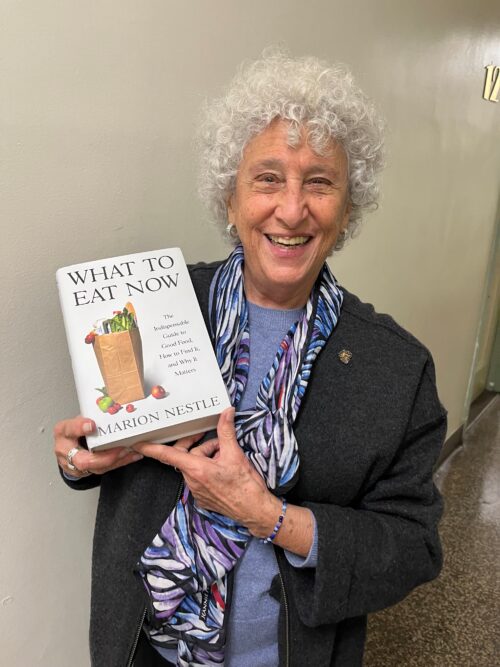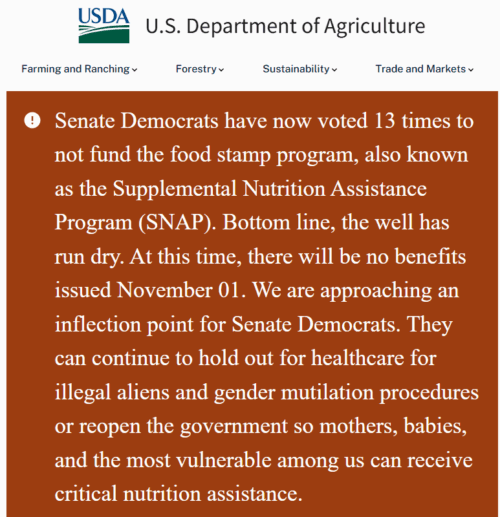I first learned about this from food safety lawyer Bill Marler: Botulism Alert: ByHeart—brand powdered infant formula linked to 13 illnesses in 10 states.
All 13 cases included in this outbreak are reported to have consumed ByHeart-brand powdered infant formula. Officials in several states have collected leftover infant formula for testing. This testing is underway, and results are not yet available. [Note: Cases are now up to 15].
The FDA announced the out-of-caution recall.
Infant botulism is a rare but potentially fatal illness that presents a serious threat to the health of infants which occurs when Clostridium botulinum spores are ingested and colonize the intestinal tract, producing botulinum neurotoxins in the immature gut of infants. Affected infants can present with some or all of the following signs and symptoms: constipation, poor feeding, ptosis (drooping eyelid), sluggish pupils, low muscle tone, difficulty sucking and swallowing, weak or altered cry, generalized weakness, respiratory difficulty, and possibly respiratory arrest.
- The FDA has an ongoing investigation of infant botulism among babies in the U.S.
- The FDA has not identified a direct link between any infant formula and these cases and there is no historical precedent of infant formula causing infant botulism.
- ByHeart is taking the proactive step to remove any potential risk from the market and ensure the highest level of safety for infants.
But then: Breaking News: Tested sample of ByHeart powdered infant formula linked to illnesses – preliminary tests are positive for Botulism
CDPH [California Department of Public Health] has tested a can of powdered infant formula that was fed to an infant with infant botulism. Preliminary results suggest the presence of the bacteria that produce botulinum toxin, consistent with the same toxin reported in the confirmed infant cases.
On its website, ByHeart has “an update for our ByHeart Family.”
Today, we were made aware by the California Department of Public Health (CDPH) that a single, previously-opened sample from one of the two recalled batches of ByHeart formula tested positive for Clostridium botulinum, the bacteria that causes infant botulism. We are treating the CDPH’s test result very seriously.
However, testing from a previously-opened can lacks scientific basis to establish causation between the product and illness. We know that Clostridium botulinum is a bacteria that exists naturally in the environment—in places like soil, dust, and even vegetables—meaning that an opened can can be contaminated in multiple ways.
Currently global regulatory and scientific authorities do not recommend testing powder infant formula for Clostridium botulinum, and no U.S. or global infant formula company tests for Clostridium botulinum.
I looked up ByHeart Formula. It claims to be a healthier alternative to commercial infant formulas:
- Closest-to-breast-milk patented protein blend (alpha-lac, lactoferrin, partially hydrolyzed proteins)
- Made with organic whole milk (not skim)
- Clinically proven benefits (easy digestion, less spitup, softer poops, more efficient weight gain, supports brain & eye development, immune health and gut health).
Clinically proven? By Heart has a clinical trial to prove it, in which infants were fed By Heart or a commercial formula.
Conclusions: “The SF [study formula] resulted in improved parent-reported gastrointestinal tolerance and more efficient growth with less daily formula and protein intake supporting that this novel formula may potentially reduce the metabolic burden of protein overfeeding associated with infant formula.”
Sources of Funding: “This trial was funded by ByHeart, Inc. No funding was received from National Institutes of Health (NIH), Wellcome Trust, Howard Hughes Medical Institute, or other sources.”
Conflicts of interest: At least five of the authors report honoria for serving on the By Heart Scientfic Advisory Board.
OK, so this is a standard industry-funded study with results interpreted as favoring the sponsor’s interests.
But take a look at the accompanying editorial. Its authors note that the effects of the By Heart formula are “almost identical” to those of the comparison commercial formula.
“There were no consistent differences in any of the growth parameters measured….no data are presented supporting that this formula achieves outcomes closer to the breastfed reference than did the control formula.”
By law, the contents of infant formula are tightly regulated; formula-fed infants are entirely dependent on formula for their survival.
That’s why this situation is such a tragedy.
Let’s hope ByHeart can figure out a way to make sure this never happens again.
Resources: Bill Marler’s additional links




